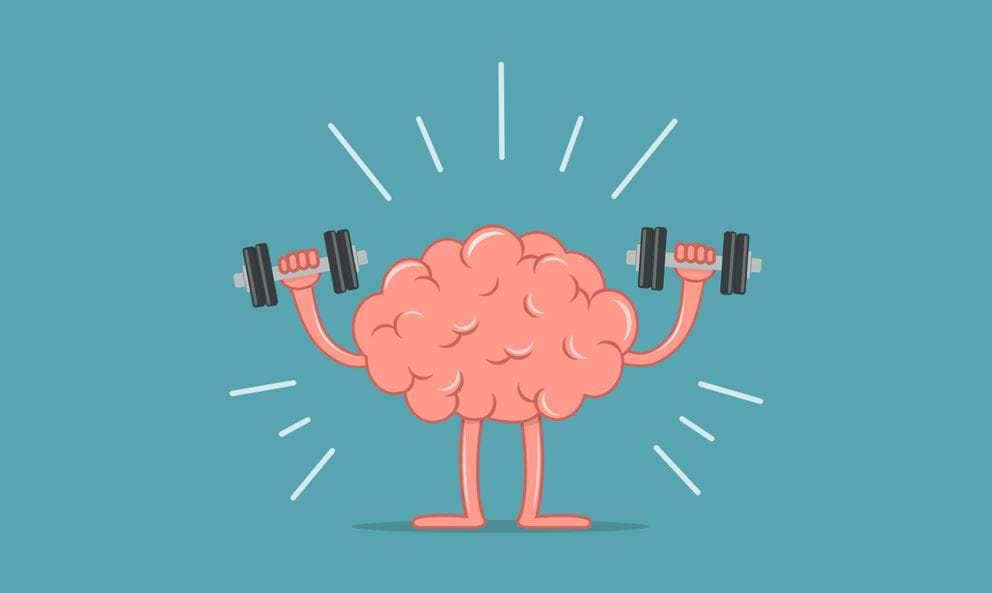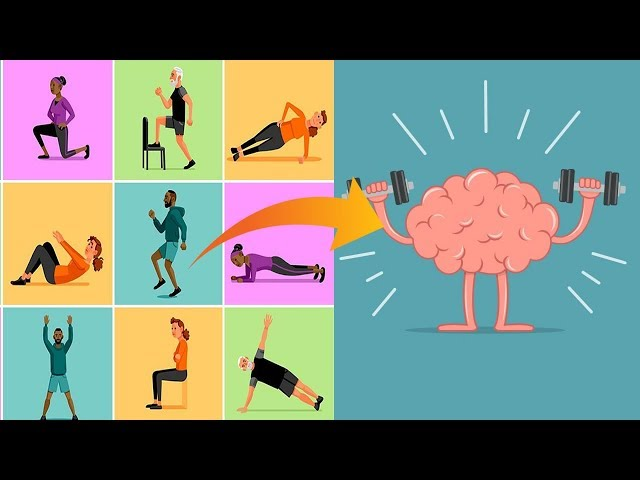Regular exercise not only improves physical health but also has numerous psychological benefits. Understanding the connection between exercise and mental health is crucial for individuals looking to boost their well-being.
This article explores the role of exercise in stress management and mood enhancement, delves into the science behind exercise and mental well-being, examines the impact of different types of exercise on mental health, discusses strategies to overcome barriers to regular exercise, and highlights the long-term psychological benefits of maintaining an active lifestyle.
Understanding the Connection Between Exercise and Mental Health

Exercise is not only beneficial for physical health but also plays a crucial role in maintaining mental well-being. The relationship between exercise and mental health is multifaceted, with various mechanisms at play.
The Role of Exercise in Stress Management
One of the significant psychological benefits of regular exercise is its ability to manage stress effectively. Engaging in physical activity triggers the release of endorphins, which are chemicals in the brain known as natural painkillers and mood elevators. These endorphins promote a sense of relaxation and well-being, helping individuals combat stress and anxiety.
Moreover, exercise reduces stress hormones like cortisol while simultaneously stimulating the production of neurotransmitters like serotonin, which play a vital role in mood regulation. This neurobiological response to exercise contributes to its stress-reducing effects.
Besides the neurobiological mechanisms, exercise offers a distraction from daily stressors and allows individuals to focus on the present moment. Engaging in activities like running, swimming, or yoga provides an opportunity for mental relaxation, encouraging a break from worries and promoting a healthier perspective on life‘s challenges.
Exercise and Its Impact on Mood Enhancement
The psychological benefits of exercise extend to mood enhancement. Regular physical activity has been found to combat feelings of sadness, depression, and low mood.
This mood-enhancing effect can be attributed to both the immediate and long-term effects of exercise on brain chemistry. Immediately following exercise, individuals often experience a “runner’s high,” characterized by a sense of euphoria, mental energy, and increased self-confidence. This is caused by the release of endorphins, as well as other neurotransmitters like dopamine and norepinephrine, which contribute to positive mood states.
Over the long term, engaging in regular exercise has been shown to reduce symptoms of clinical anxiety and depression and improve overall mental well-being. In fact, studies suggest that exercise can be as effective as antidepressant medication in treating mild to moderate depression.
Furthermore, exercise promotes better sleep quality, which is essential for maintaining a stable mood. Physical activity increases the body’s temperature, and the subsequent drop in temperature after exercise can promote feelings of relaxation and facilitate better sleep.
Additionally, exercise provides individuals with a sense of accomplishment and self-efficacy. Setting and achieving exercise goals can boost self-esteem and confidence, leading to improved mood and a more positive outlook on life.
Moreover, engaging in exercise often involves social interaction, whether it be participating in group fitness classes or joining sports teams. This social aspect of exercise can help combat feelings of loneliness and isolation, contributing to improved mental well-being.
Exercise has a profound impact on mental health by managing stress effectively, enhancing mood, promoting better sleep, boosting self-esteem, and providing social interaction. Incorporating regular, moderate physical activity into one’s routine can be a powerful tool for maintaining and improving mental well-being.
The Science Behind Exercise and Mental Well-being

Exercise is not only beneficial for physical health, but it also has a profound impact on mental well-being. The connection between exercise and the brain is a fascinating field of study, revealing the intricate ways in which physical activity can positively influence our cognitive function and emotional state.
The Neurological Effects of Regular Physical Activity
Engaging in regular exercise has notable effects on brain health and cognitive function. Research has shown that physical activity promotes neuroplasticity, the brain’s ability to adapt and reorganize itself. This means that when we exercise regularly, our brains have the remarkable ability to form new neural connections and strengthen existing ones.
One of the key players in this process is brain-derived neurotrophic factor (BDNF), a protein that facilitates the growth of new neurons. Regular exercise increases the production of BDNF, leading to new brain cells, improved memory, increased cognitive function, and enhanced learning abilities.
In fact, studies have shown that individuals who engage in regular exercise have better memory retention and faster information processing compared to those who lead sedentary lifestyles.
Hormonal Changes Triggered by Exercise
Exercise also has significant effects on hormonal balance, which can have a profound impact on our mood and overall mental well-being. Physical activity stimulates the release of endorphins, often referred to as the “feel-good” hormones. These natural mood enhancers not only help alleviate stress and anxiety but also create a sense of euphoria and happiness.
In addition to endorphins, exercise reduces the levels of stress hormones, such as cortisol, in the body. High levels of cortisol can contribute to anxiety and depression, and exercise helps counteract these negative effects. By engaging in regular physical activity, we can effectively regulate our stress response and improve our ability to cope with daily challenges and mental illness.
But the influence of exercise on hormones doesn’t stop there. Physical activity also influences the production of other hormones related to mental well-being. For example, exercise can increase the secretion of serotonin, a neurotransmitter associated with happiness and well-being. This boost in serotonin levels can have a profound impact on our mood, helping to alleviate symptoms of depression and anxiety.
Furthermore, exercise has been shown to improve sleep quality. Regular physical activity helps regulate our sleep-wake cycle and promotes deeper, more restorative sleep. This is particularly important for mental well-being, as sleep plays a crucial role in cognitive function, emotional regulation, and overall mental health.
The science behind exercise and mental well-being is a complex and fascinating field. Regular physical activity not only promotes neuroplasticity and enhances cognitive function but also influences hormonal balance, leading to improved mood and overall better mental health and well-being. So, the next time you lace up your sneakers or hit the gym, remember that you are not only benefiting your body but also nurturing your mind.
Different Types of Exercise and Their Mental Health Benefits

Exercise is not only beneficial for physical health but also has a profound impact on mental well-being. Different types of exercises offer unique psychological benefits, enhancing mood, reducing stress, and improving overall mental health.
The Mental Benefits of Aerobic Exercises
Aerobic exercises, such as jogging, cycling, and dancing, offer numerous psychological benefits. These activities increase heart rate and improve cardiovascular fitness while simultaneously exercising and boosting mental well-being.
Engaging in aerobic exercises has been found to be particularly effective in alleviating symptoms of depression and anxiety. The physical exertion involved in these activities promotes the release of endorphins, which are known as the “feel-good” hormones.
Additionally, aerobic exercises stimulate the production of neurotransmitters like serotonin, which plays a crucial role in regulating mood. As a result, individuals who regularly participate in aerobic exercises experience improved mood and reduced stress levels.
Moreover, aerobic exercises provide an opportunity for individuals to have leisure time physical activity and engage in social interactions. Group activities like dance classes or team sports not only offer physical benefits but also foster a sense of belonging and social support. This social aspect of aerobic exercises further contributes to improved mental well-being.
Strength Training and Its Impact on Mental Health
In addition to aerobic exercises, strength training provides unique psychological benefits. Engaging in activities like weightlifting or resistance training not only enhances physical strength but also promotes mental resilience.
Strength training has been found to improve body image and self-esteem. As individuals engage in regular strength training, they witness an increase in muscle tone and a transformation in their body composition. This positive change in physical appearance often leads to a more positive self-perception, which translates into improved mental well-being and overall life satisfaction.
Furthermore, strength training is associated with increased self-efficacy and self-confidence. As individuals challenge themselves to lift heavier weights or achieve new fitness goals, they develop a sense of accomplishment and empowerment. This newfound confidence extends beyond the gym and positively impacts various aspects of their lives.
Additionally, strength training has been linked to improved cognitive function. Research suggests that engaging in resistance exercises can enhance memory, attention, and overall cognitive performance. The combination of physical exertion and mental focus required during strength training contributes to these cognitive benefits.
It is important to note that both aerobic exercises and strength training can be incorporated into a well-rounded exercise routine. By combining these different types of exercises, individuals can maximize the psychological benefits and achieve optimal mental well-being.
Overcoming Barriers to Regular Exercise

Dealing with Common Excuses
While the benefits of regular exercise are abundantly clear, individuals often face barriers that prevent them from maintaining an active lifestyle. Common excuses include lack of time, lack of motivation, and perceived difficulty. Overcoming these barriers requires a proactive approach.
When it comes to time management, it’s important to prioritize exercise and schedule it as you would any other important commitment. By setting aside specific times for physical or exercise class or activity, you are more likely to follow through and make it a regular part of your routine. Consider waking up a bit earlier in the morning or utilizing your lunch break for a quick workout. Remember, every minute counts!
Finding motivation can be a challenge, but it’s not impossible. One effective strategy is to set realistic goals. Start by identifying what you want to achieve and break it down into smaller, more attainable milestones. Celebrate each small victory along the way to keep yourself motivated and encouraged.
Additionally, finding activities that you genuinely enjoy can make a world of difference. Whether it’s dancing, swimming, hiking, or playing a sport, discovering an exercise that brings you joy will make it easier to stay motivated and committed.
Another common barrier is the perception of difficulty. It’s important to remember that exercise doesn’t have to be overly complicated or strenuous. Start small and gradually increase the duration and intensity of your workouts.
Even a 10-minute walk or a few sets of bodyweight exercises can make a significant difference in your overall health, weight control and well-being. Remember, any exercise is better than none, so don’t be discouraged if you can’t commit to a long workout session right away.
Creating a Sustainable Exercise Routine
Creating and sticking to a sustainable exercise routine is integral to reaping the psychological benefits of regular exercise. Incorporating variety into your workouts is key to preventing boredom and maintaining motivation. Try different types of exercises, such as cardio, strength training, and flexibility exercises, to keep your routine interesting and engaging. You can also explore different workout classes or join a sports team to add a social element to your fitness journey.
While it’s important to challenge yourself, it’s equally important to avoid burnout. Pushing yourself too hard without giving your body enough time to rest and recover can lead to injuries and demotivation. Find a balance between pushing your limits and listening to your body’s needs. Rest days are just as important as workout days, so make sure to incorporate them into your routine.
Seeking support from friends, family, or fitness professionals can also greatly contribute to your success in maintaining a regular exercise routine. Having someone to hold you accountable and provide encouragement can make a significant difference in your motivation levels. Consider finding a workout buddy or joining a fitness community where you can share your goals, progress, and challenges.
Remember, overcoming barriers to regular exercise is a journey that requires patience and perseverance. By taking a proactive approach, setting realistic goals, and finding activities that you enjoy, you can create a sustainable exercise routine that will not only benefit your physical and mental health problems, but also enhance your overall well-being.
The Long-term Psychological Benefits of Regular Exercise

Exercise and Its Role in Preventing Mental Health Disorders
Maintaining an active lifestyle can significantly decrease the risk of developing mental health disorders. Regular exercise acts as a protective factor, reducing the likelihood of conditions such as major depression and anxiety disorders, and cognitive decline. Studies have shown that physically active individuals have a lower risk of developing these mental health issues compared to sedentary individuals.
Exercise not only benefits physical health but also plays a crucial role in maintaining mental well-being. Engaging in regular physical activity stimulates the release of endorphins, also known as “feel-good” hormones, which can alleviate symptoms of depression and anxiety.
Additionally, exercise provides a healthy outlet for stress and helps individuals manage their emotions effectively.
Furthermore, regular exercise promotes better sleep quality, which is essential for optimal mental health. Physical activity increases the production of serotonin, a neurotransmitter that regulates sleep patterns and mood. By incorporating moderate exercise often into your routine, you can establish a healthy sleep-wake cycle, leading to improved mental clarity and emotional stability.
The Impact of Regular Exercise on Cognitive Functioning
Consistent physical activity not only benefits mental health but also supports cognitive functioning. Regular exercise has been linked to improved memory, attention, and executive function. It enhances blood flow to the brain, promoting the delivery of oxygen and nutrients necessary for optimal brain function.
Moreover, exercise fosters the growth of new neurons in the hippocampus, a region of the brain involved in memory and learning. This neurogenesis process improves the brain’s ability to retain information and enhances overall cognitive performance.
Additionally, physical activity stimulates the release of brain-derived neurotrophic factor (BDNF), a protein that promotes the development of neural networks critical for cognitive processes.
Engaging in aerobic exercises, such as running or swimming, has been found to have particularly positive effects on cognitive functioning. These activities increase heart rate and oxygen intake, leading to improved brain function and mental acuity. By incorporating regular aerobic exercise into your routine, you can experience enhanced focus, concentration, and problem-solving abilities.
In conclusion, regular exercise offers a multitude of psychological benefits. From stress management and mood enhancement to improved cognitive function and prevention of mental health disorders, the positive effects of physical activity on mental well-being are well-documented. By prioritizing exercise and incorporating it into your daily routine, you can experience the tremendous psychological benefits that come from taking care of your body and mind.

